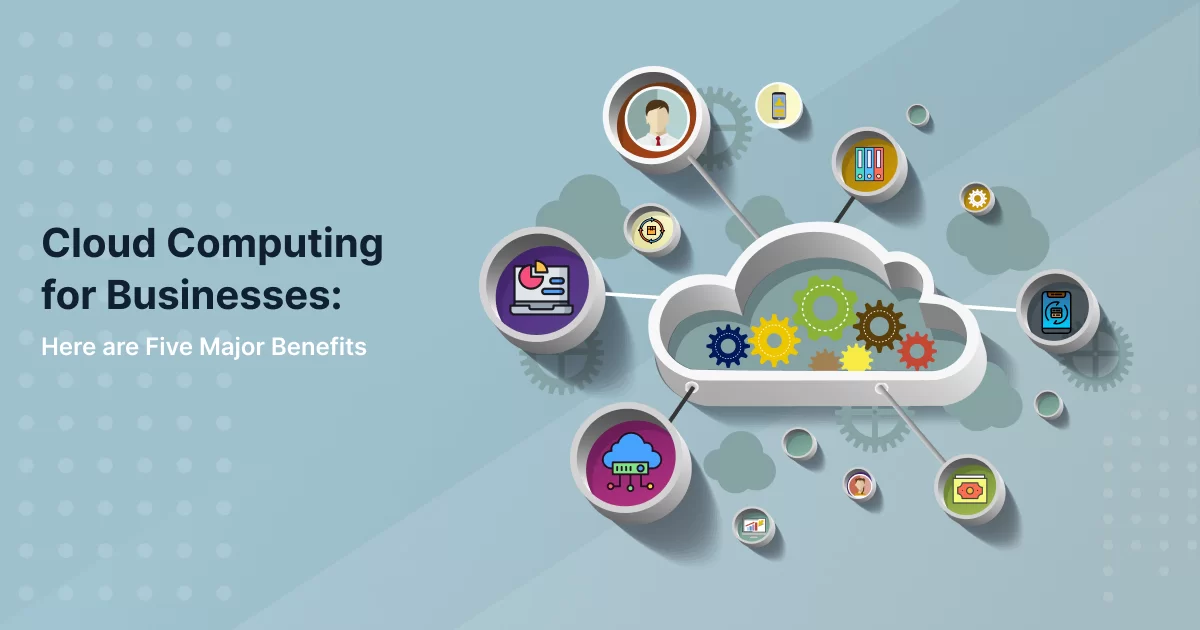Cloud Computing: Advising Businesses on Hosting and Server Services
Advertisment
1. Introduction to Cloud Computing for Businesses
In today’s digital age, businesses are increasingly reliant on technology to streamline their operations and reach a global audience. One of the most transformative technologies driving this shift is cloud computing. Cloud computing refers to the delivery of various services over the internet, including data storage, servers, databases, networking, and software. Instead of owning and maintaining physical hardware, businesses can access these resources on demand, allowing for greater flexibility and efficiency.
For businesses, cloud computing offers numerous benefits, including cost savings, scalability, enhanced security, and improved collaboration capabilities. Whether you’re a small business looking to host your website or a large enterprise seeking advanced server solutions, cloud computing provides the foundation for modern digital infrastructure.

2. Types of Hosting and Server Services Based on Cloud Computing
When it comes to hosting and server services, businesses have several options to choose from, each suited to different needs and budgets. Here’s a breakdown of the most common types of hosting and server services available in the cloud computing landscape:
Shared Hosting
Shared hosting is one of the most popular and cost-effective hosting solutions available, especially for small businesses and startups. With shared hosting, multiple websites are hosted on a single server, sharing its resources such as CPU, RAM, and bandwidth.
Benefits of Shared Hosting:
- Affordability: Shared hosting is the least expensive option, making it ideal for businesses with limited budgets.
- Ease of Use: Most shared hosting plans come with user-friendly control panels, making it easy to manage your website.
Limitations:
- Limited Resources: Since multiple websites share the same server resources, performance can be affected if other sites experience high traffic.
- Less Control: Users have limited control over server settings and configurations.

VPS Hosting (Virtual Private Server)
VPS hosting provides a balance between shared hosting and dedicated servers. It involves partitioning a physical server into multiple virtual servers, each with its own dedicated resources.
Advantages of VPS Hosting:
- Scalability: VPS hosting allows businesses to scale resources up or down as needed.
- Enhanced Performance: With dedicated resources, websites experience better speed and reliability.
When to Use VPS Hosting:
- For businesses experiencing growth and needing more control over their server environment.
- When shared hosting no longer meets the needs for traffic and performance.
Dedicated Server
A dedicated server provides an entire server exclusively for one business or application. This solution is ideal for large enterprises with high-traffic websites or resource-intensive applications.
Key Features of Dedicated Servers:
- Full Control: Businesses have complete control over server settings and configurations.
- High Performance: With dedicated resources, performance is optimized, ensuring faster load times and better user experiences.
Ideal Use Cases:
- Large e-commerce platforms and websites with high traffic.
- Applications requiring extensive processing power and data storage.
Cloud Hosting
Cloud hosting is a relatively new type of hosting that distributes your data across multiple servers connected in a network (the cloud). It offers a high level of reliability and flexibility, making it an excellent choice for businesses of all sizes.
Benefits of Cloud Hosting:
- Scalability: Easily scale your resources up or down based on traffic demands.
- Cost-Efficiency: Pay only for the resources you actually use, reducing operational costs.
- High Availability: With data distributed across multiple servers, downtime is significantly reduced.
Comparison with Traditional Hosting:
- Flexibility: Unlike traditional hosting, cloud hosting allows for dynamic scaling.
- Reliability: Even if one server fails, others in the network can pick up the slack, ensuring continuous service.
3. Advantages of Using Cloud Servers for Business Websites
Using cloud servers for your business website comes with numerous advantages that can significantly impact your online presence and business operations:
1. Scalability and Flexibility
Cloud servers offer unmatched scalability, allowing businesses to easily adjust resources based on demand. This flexibility is crucial during peak traffic times, such as product launches or seasonal sales, ensuring your website remains fast and responsive.
2. Cost-Efficiency
The pay-as-you-go model of cloud servers means that you only pay for the resources you use. This approach helps businesses save money by avoiding the costs associated with over-provisioning or maintaining unused resources.
3. Enhanced Security
Cloud servers provide robust security features, including data encryption, firewalls, and access control. Providers often implement the latest security protocols to protect sensitive business data from cyber threats.
4. Disaster Recovery and Data Backup
Cloud computing solutions come with built-in disaster recovery features, ensuring that your data is regularly backed up and can be easily restored in case of an outage or data loss.
5. Global Accessibility
One of the key benefits of cloud servers is that they allow for global access. Your team can access the data and applications they need from anywhere in the world, enabling remote work and enhancing productivity.
4. Choosing the Right Hosting and Server Service for Your Business
Selecting the appropriate hosting and server service for your business is a critical decision. It depends on various factors such as budget, website traffic, scalability needs, and the level of technical expertise within your organization.
Factors to Consider:
- Website Traffic: For websites with high traffic, dedicated or cloud hosting options are recommended.
- Budget Constraints: Shared hosting is ideal for small businesses with limited budgets, while VPS and cloud solutions cater to mid-sized companies.
- Scalability Needs: Businesses expecting growth should consider cloud hosting due to its scalability.
- Security Requirements: Ensure the provider offers robust security measures to protect against cyber threats.
5. Leading Cloud Computing Providers for Business Hosting
Top Providers to Consider:
- Amazon Web Services (AWS): Known for its vast array of services and scalability, AWS is ideal for businesses looking for a reliable and flexible cloud infrastructure.
- Google Cloud Platform (GCP): Offers integrated tools for businesses to manage their data and applications efficiently.
- Microsoft Azure: A strong contender in the cloud space, Azure provides robust support for hybrid cloud setups.
- DigitalOcean: Popular among startups for its user-friendly interface and affordable pricing.
Comparison of Providers:
- Pricing: AWS and Google Cloud offer competitive pricing with pay-as-you-go models, while DigitalOcean is known for its budget-friendly plans.
- Support: Microsoft Azure and AWS provide extensive support, including dedicated account managers for enterprise clients.
- Performance: All these platforms offer excellent uptime and performance, but AWS has a slight edge in terms of global reach and data center locations.
6. Security and Data Protection in Cloud Computing
Security is a primary concern for businesses using cloud servers. Here are some measures to consider:
1. Data Encryption
Ensure that your provider offers data encryption both in transit and at rest to prevent unauthorized access.
2. Access Control
Implement multi-factor authentication (MFA) and role-based access control to limit who can access your data and applications.
3. Regular Backups
Choose a cloud service provider that offers automatic data backups and easy recovery options to protect against data loss.
7. Benefits of Cloud Hosting for Small and Medium-Sized Enterprises (SMEs)
Cloud hosting is particularly advantageous for SMEs due to its cost-effectiveness and adaptability:
1. Reduced Operational Costs
By eliminating the need for physical hardware and reducing energy consumption, SMEs can significantly cut down on their IT expenses.
2. Increased Productivity
With cloud solutions, businesses can quickly deploy new applications and tools that enhance productivity and streamline operations.
3. Scalability
SMEs can start small and scale their cloud resources as they grow, ensuring they only pay for what they need at any given time.
8. Conclusion
In conclusion, cloud computing has revolutionized the way businesses approach hosting and server management. By choosing the right cloud hosting service, businesses can enjoy improved performance, reduced costs, and enhanced security. Whether you are a small startup or a large corporation, the flexibility and reliability offered by cloud computing solutions are unmatched.
For businesses looking to future-proof their operations, investing in a cloud-based hosting solution is a strategic move that offers long-term benefits and competitive advantages.
Advertisment








Post Comment